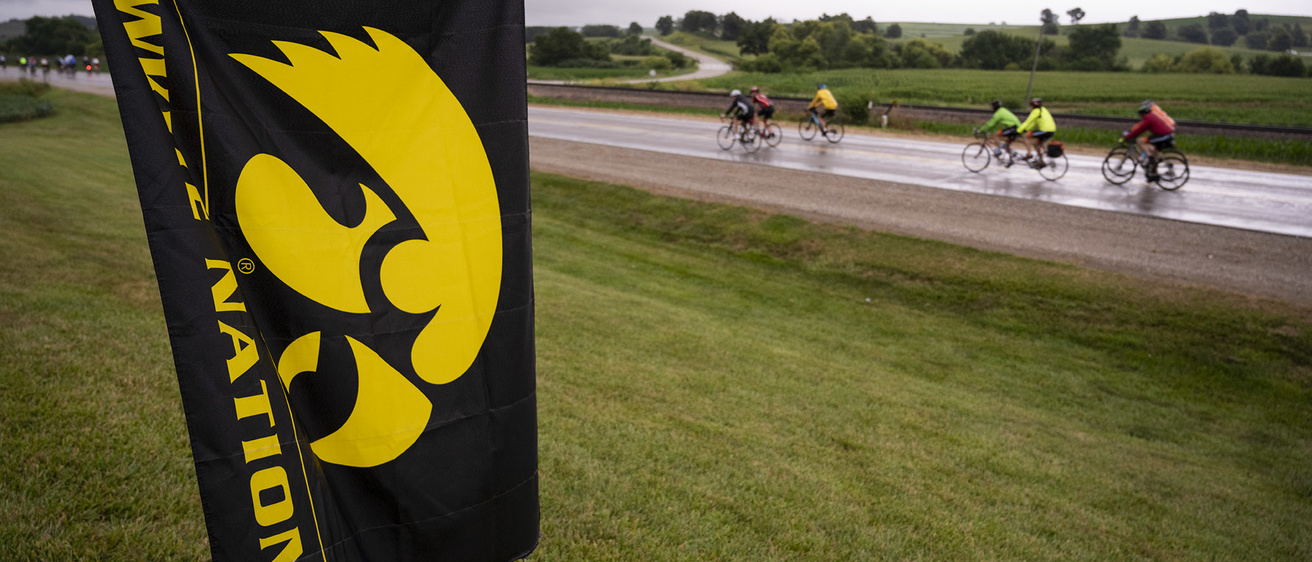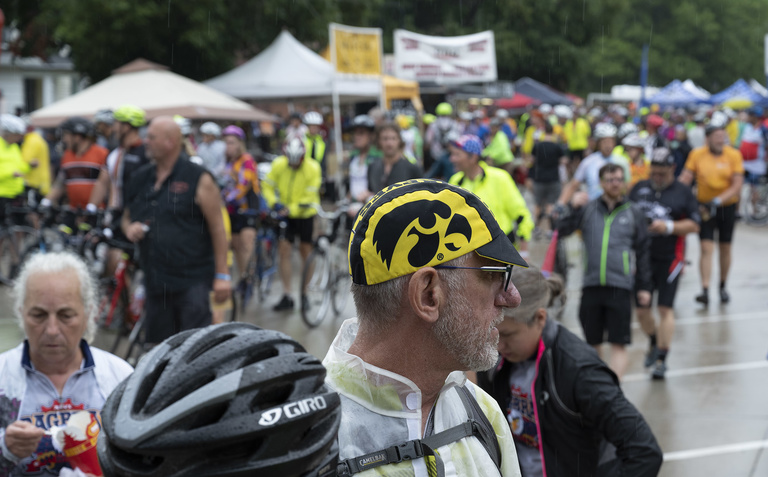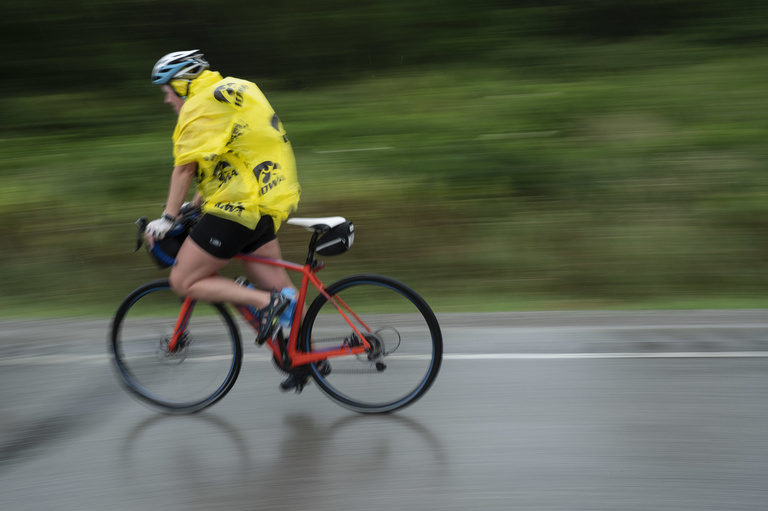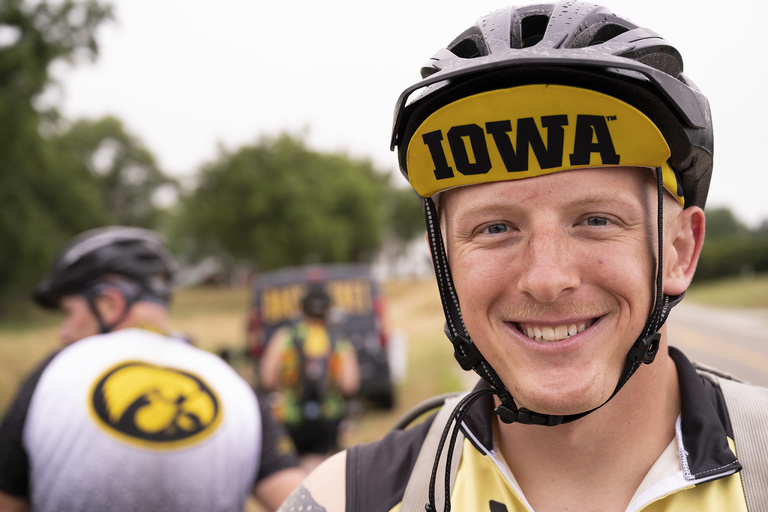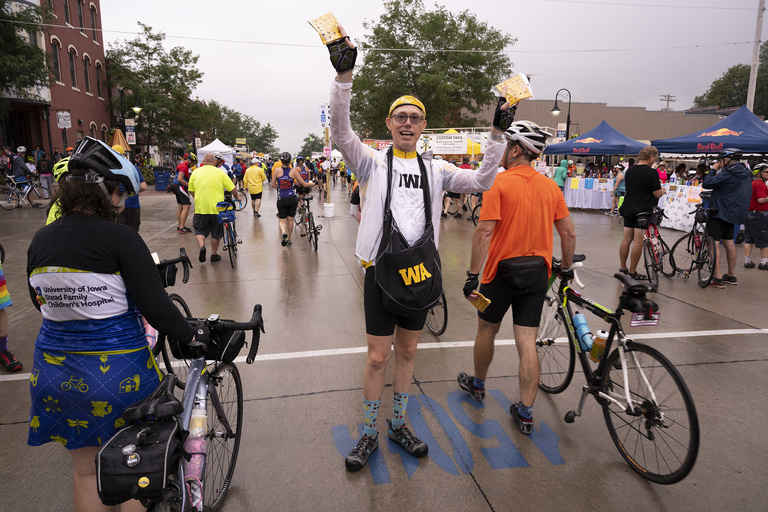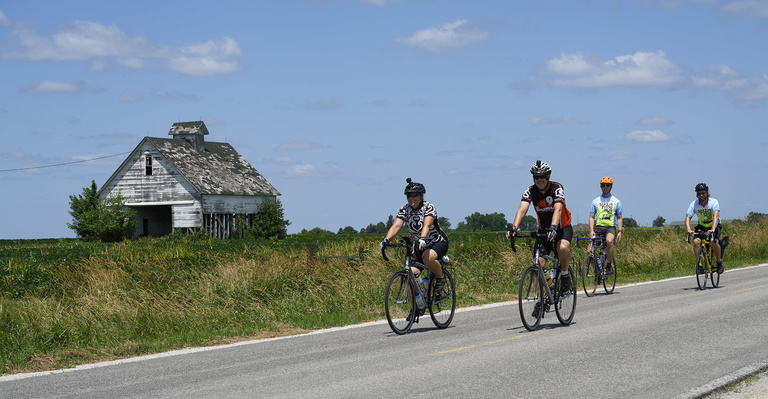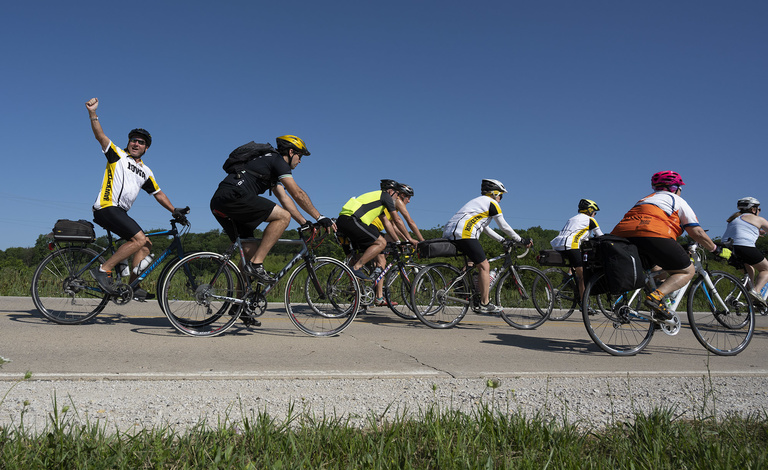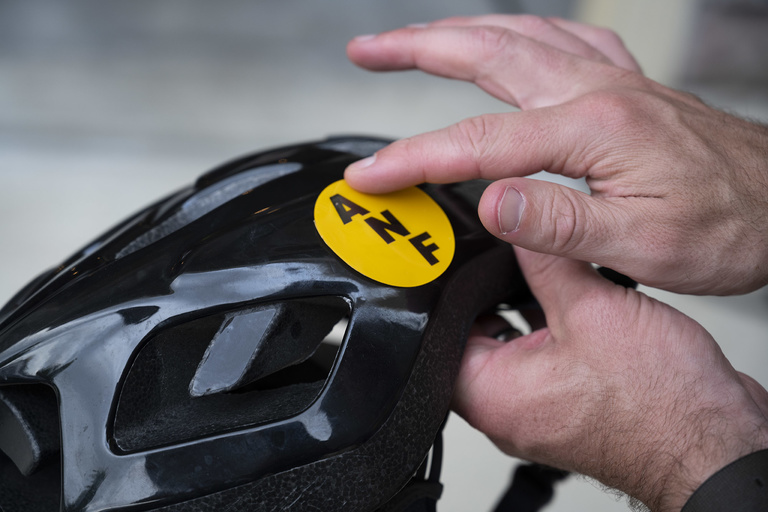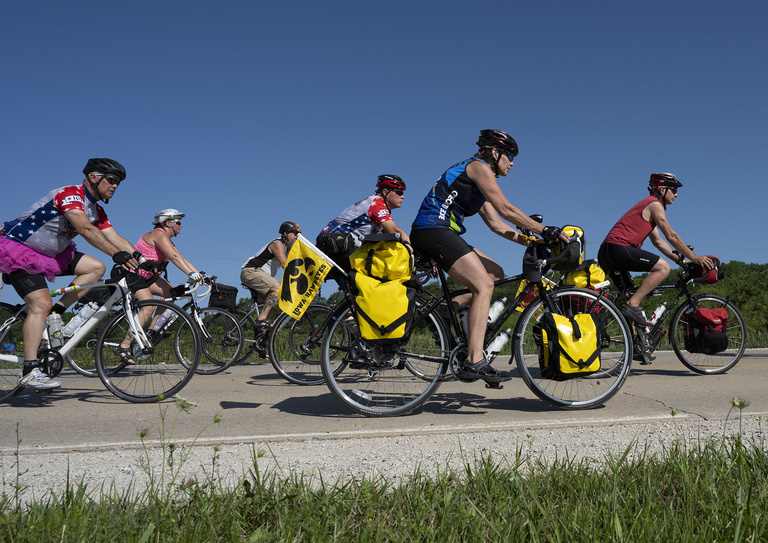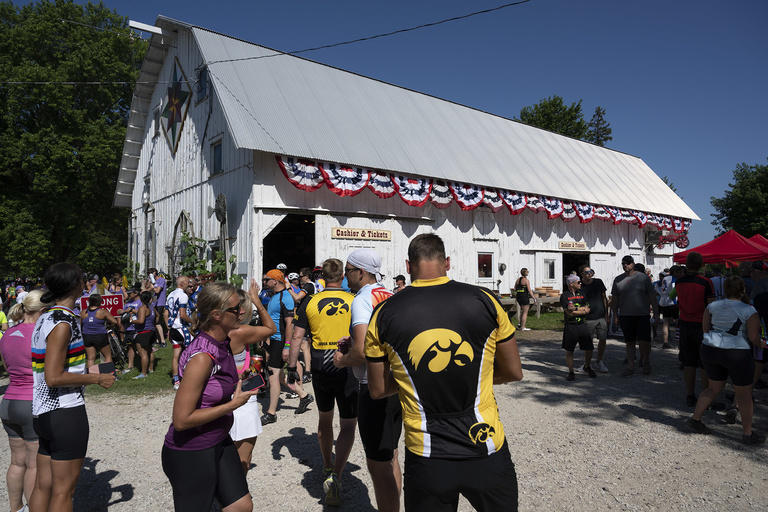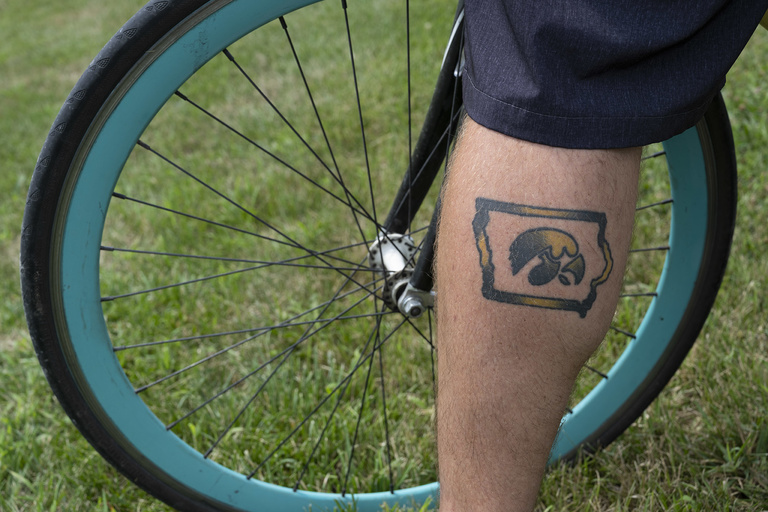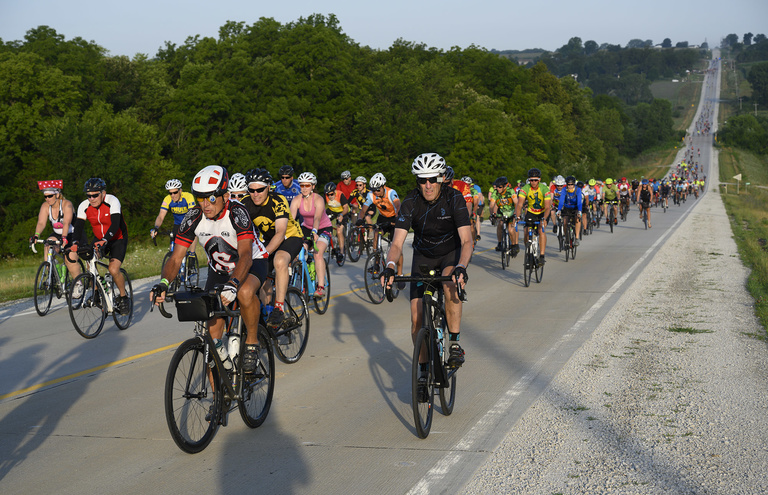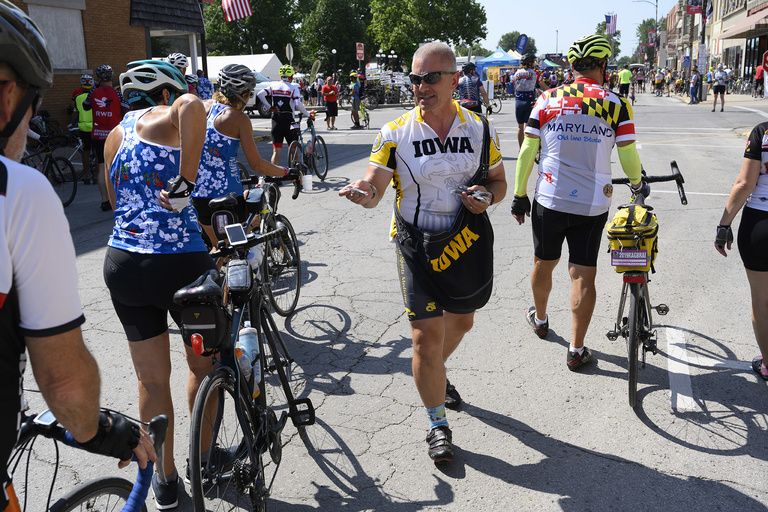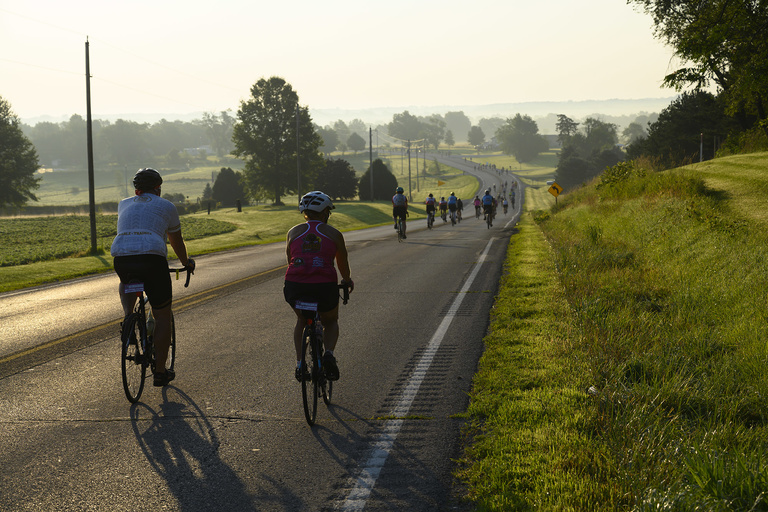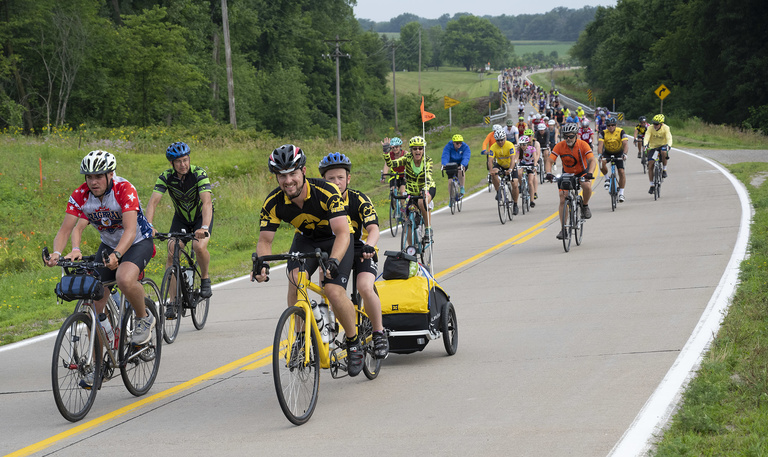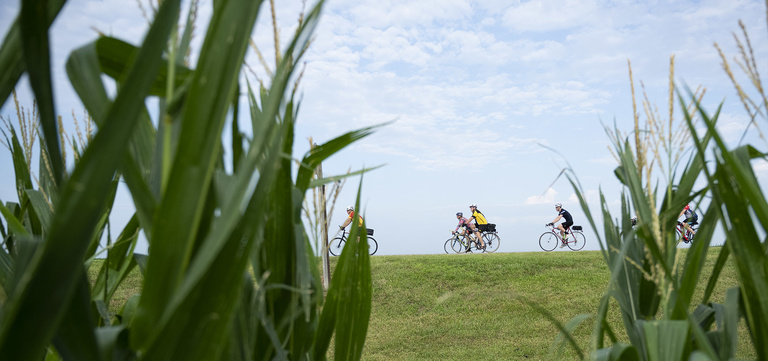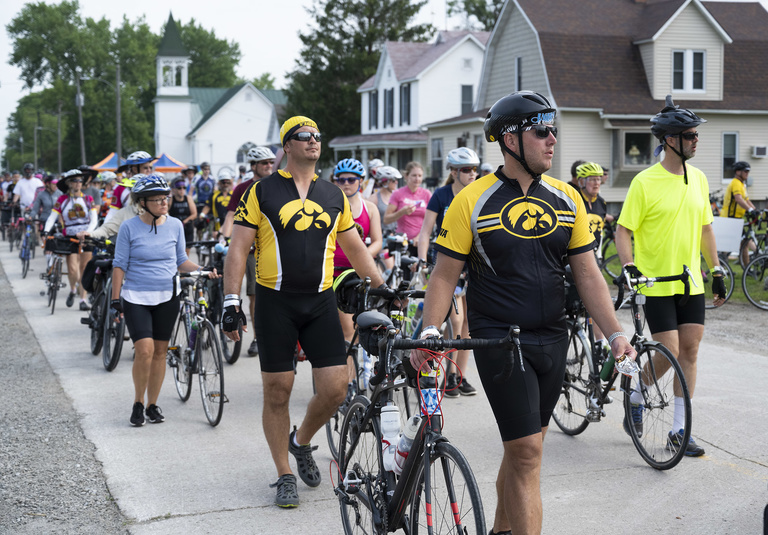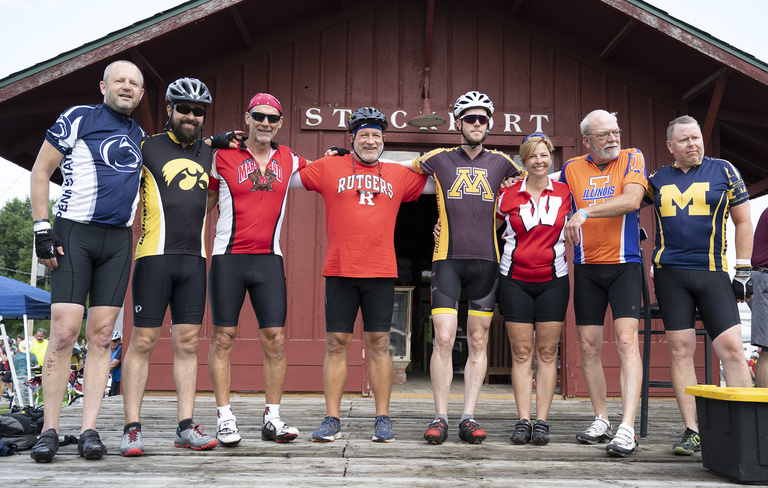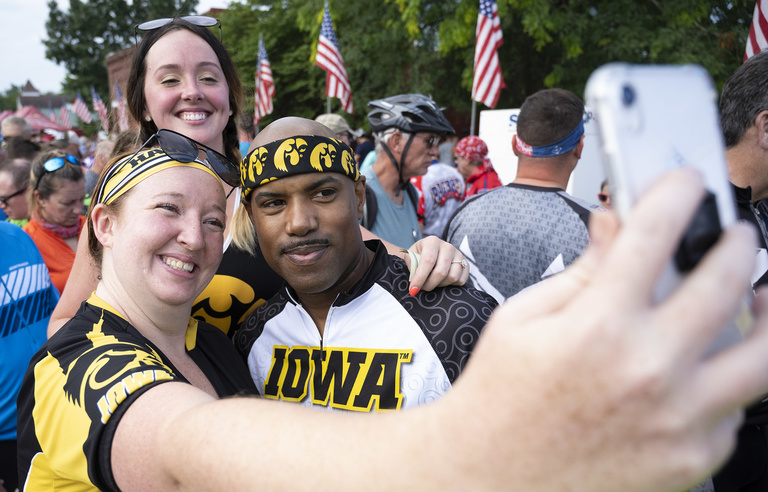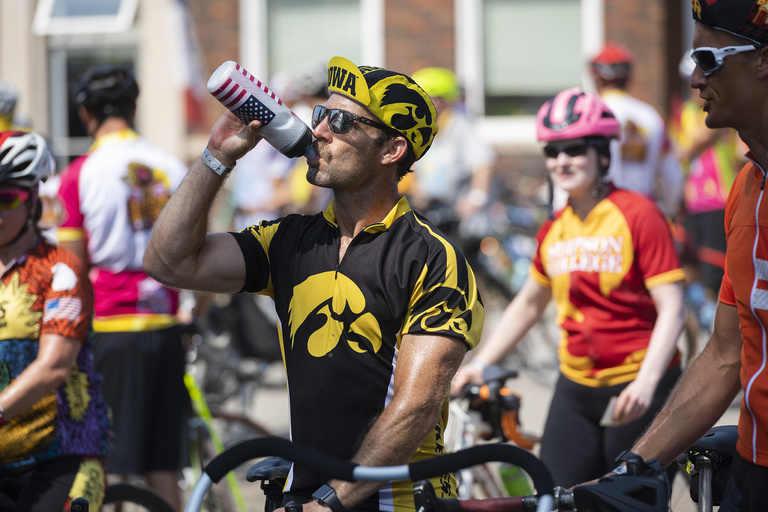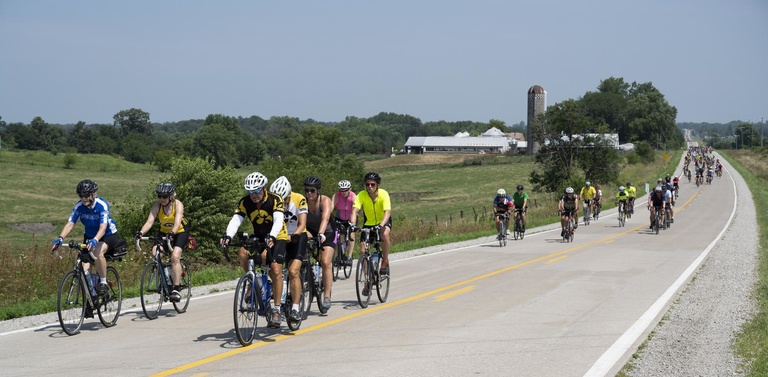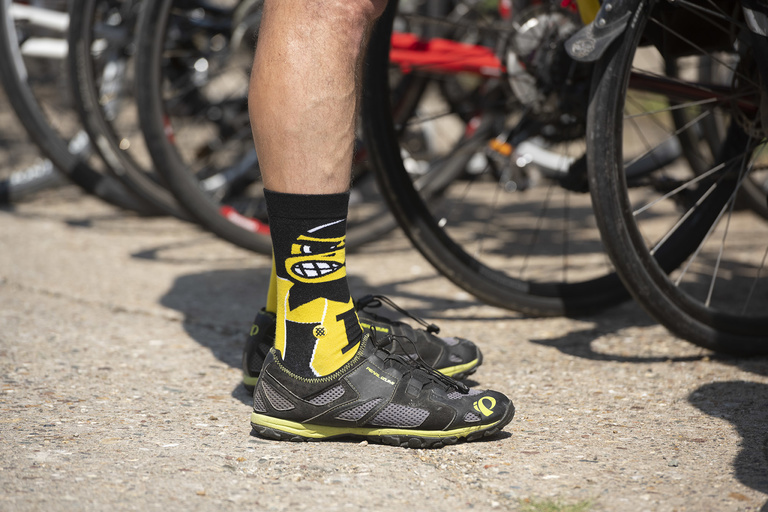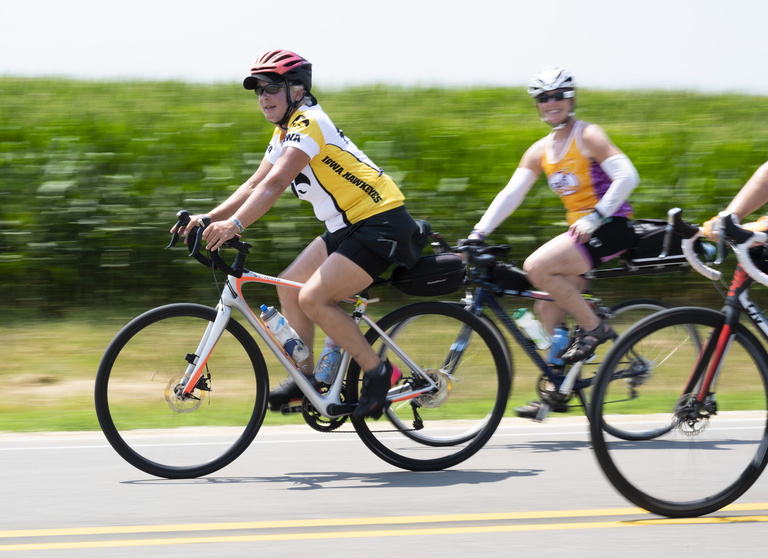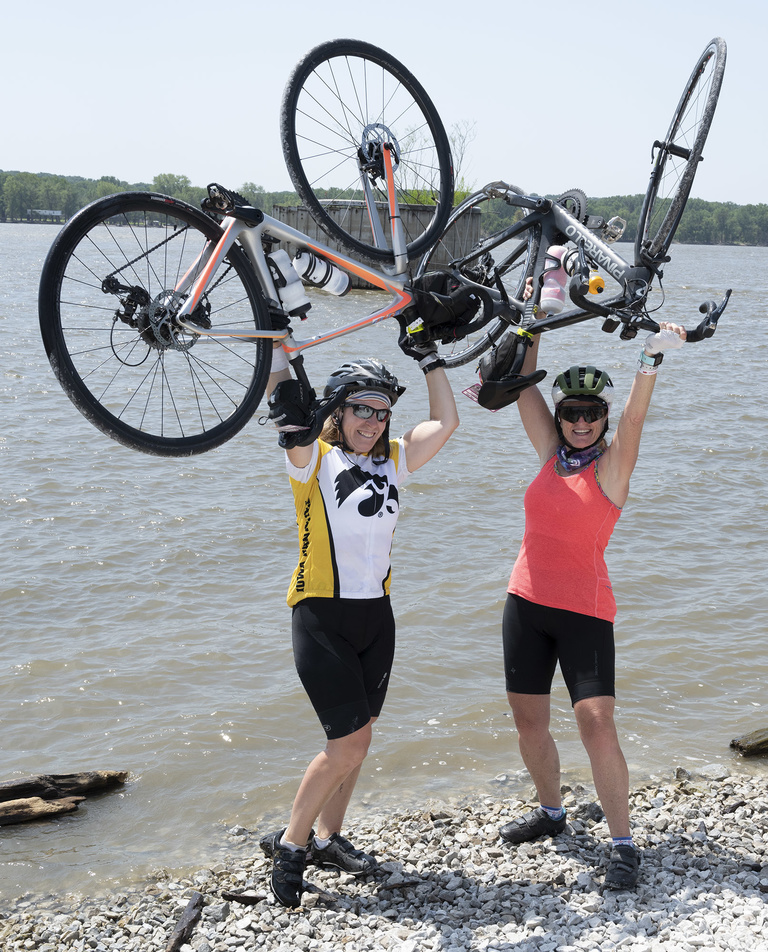When 10,000-ish RAGBRAI riders hit tiny Libertyville, Iowa, on July 25, those who are good at math knew how much the burg’s population of 324 would multiply.
And with the help of two University of Iowa students, residents were ready for them. Seniors Ryan Light and Ryan Raaf worked with the town’s organizing committee, planning and putting together events that encouraged riders to stop for a few minutes during their cross-state ride.
“They’ve been great helping us with feedback on our ideas,” says Bev Nelson, co-chair of the Libertyville Community Celebrations committee that planned the activities.
Light and Raaf are part of a capstone class offered by the Iowa John Pappajohn Entrepreneurial Center (Iowa JPEC). Now five years old, the program assigns students, most of them enterprise leadership majors, to work with pass-through towns along the RAGBRAI route planning events and activities. The goal is to encourage riders to get off their bikes and stick around awhile, spend some money, and maybe become so charmed they decide to come back in the future.
That first year, in 2015, a mere five students worked with one town, Solon. This year, 16 students worked with seven towns—Avoca, Anita, Norwalk, Lacona, Salem, and Houghton, as well as Libertyville. Except for Norwalk, a suburb of Des Moines, all are small communities in rural parts of the state—with a combined population of 3,637.
Bob Walker, Iowa JPEC lecturer and director of undergraduate students, says RAGBRAI gives small Iowa towns a chance to show themselves off to visitors, and the students help make sure they’re ready for that spotlight.
“RAGBRAI is a big shot in the arm for the communities,” Walker says. “The goal for the students is to maximize the economic impact of RAGBRAI for the town and to make it sustainable, to get people to come back. I tell our students we have the intellectual capital to help these communities. Now it is time to apply that knowledge to benefit others.”
In the spring, Walker directs the students to have face-to-face meetings with RAGBRAI representatives in their respective towns, conduct a needs assessment, research the history of the town and RAGBRAI, and create a project plan to help the town maximize the economic impact of RAGBRAI. In the summer, the students execute those plans—which requires being in their respective communities the day before, the day of, and the day after RAGBRAI passes through.
Light says the Libertyville planning committee was well along in its process by the time he and Raaf joined last spring. About 30 people helped organize the day’s events, or roughly 10% of the town’s population, and Nelson says whoever wasn’t organizing likely volunteered.
“For a town that’s never hosted RAGBRAI before, they were super well-organized,” says Light. “We worked with committee chairs and the different people organizing the events, and they did a great job of drafting volunteers and sponsors.”
The town, located about five miles south of Fairfield, adopted a Hawaiian/South Pacific theme, A Slice of Paradise. Streets were lined with tiki torches and totems, and volunteers wore grass skirts. A 14-piece band played through the day, with lawn games and various inflatable attractions for amusement. And then there was the food—brats, burgers, brick-oven pizza, and of course pie—because no RAGBRAI stop is complete without pie.
The town also sold souvenir T-shirts, thanks to an idea from Light and Raaf. Libertyville, as small as it is, doesn’t have many resources for the event. Nelson says most everything was either donated or paid for by cash donations. She says organizers wanted to sell specially designed RAGBRAI T-shirts for riders to remember their town by, but were hesitant to spend a lot of money to print them and then get stuck with boxes of unsold merchandise.
But Raaf and Light came up with a system where riders could order the garments during the event at an online kiosk for later delivery to their home. With no upfront expenses, Light says, the town wasn’t afraid of losing its shirt on unsold shirts.
Light, who plans to graduate in December, says the experience helped him further develop time- and project-management skills that have already helped him land a job working for a startup online listing agent for vintage cars in Cedar Rapids.
A native of Lisbon, Iowa, he says it was also a chance to give something back to the kind of place where he grew up.
“This was such a big event for a small town like this,” he says. “They’ll remember it for a long time.”
Walker expects the class will keep growing. Word has gotten out, and he doesn’t have any challenges finding either students or towns that want to work with JPEC.
“We’re spreading Hawkeye love across Iowa,” he says.
